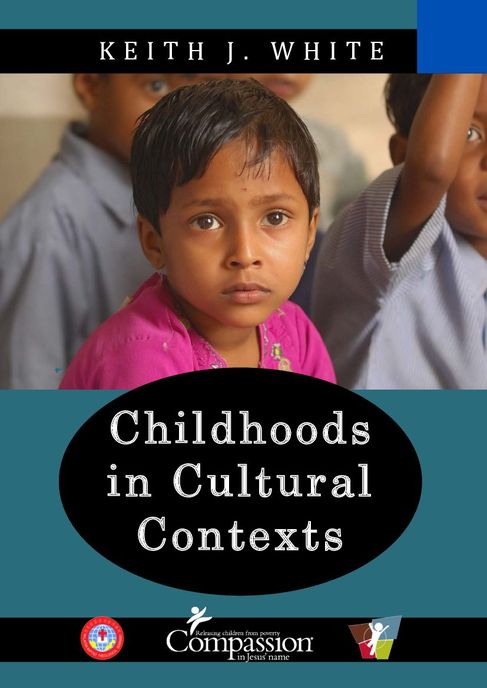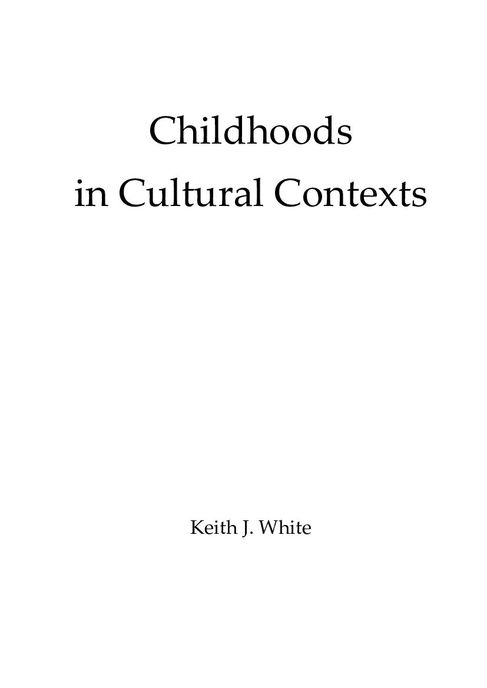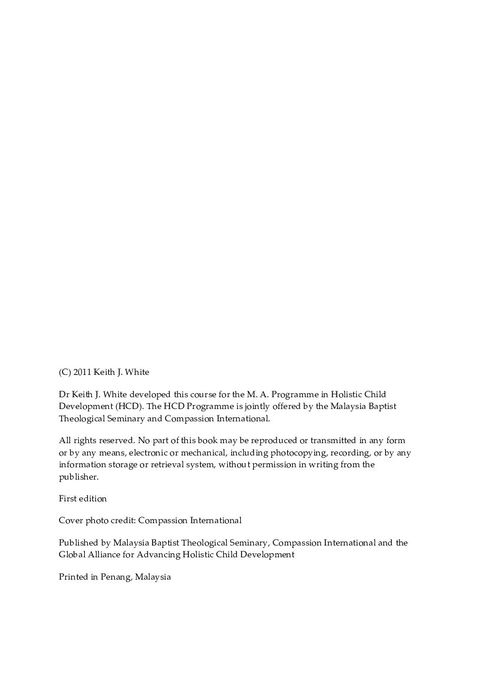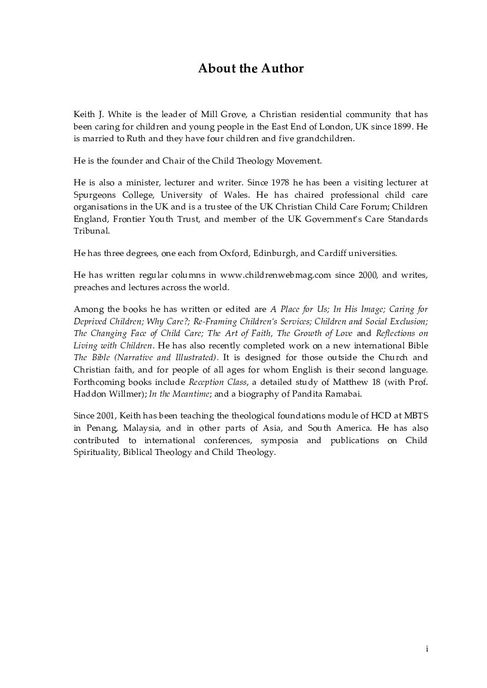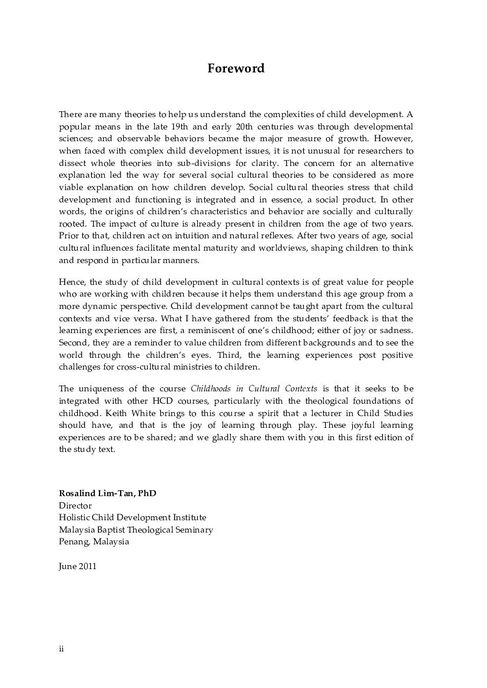Childhoods in Cultural Context
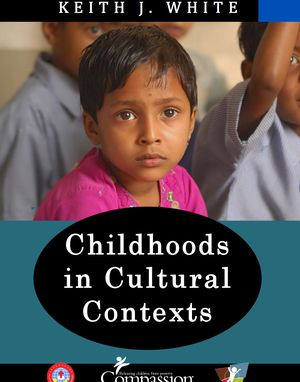
Preview
Login Required
Lazima uwe mmoja wa jamii ya ForChildren.com ili upakue nyenzo/raslimali zilizomo. Bofya vitufe vilivyo hapa chini ili uingie au ujisajili!
| Category | None |
| Copyright Owner | Compassion International |
Childhoods in Cultural Context is a course that teaches people various aspects of child development in cultural contexts. As mentioned in the Foreword, the study of child development in cultural contexts is of great value for people who are working with children because it helps them understand this age group from a more dynamic perspective. Child development cannot be taught apart form the cultural contexts and vice versa. This course reminds students to value of children from different backgrounds and reminds them to see the world through children's eyes. This course is integrated with other HCD courses, particularly with the theological foundations of childhood. It is suitable for young adults and older (ages 18+) and it is a downloadable book in PDF format.
Related Documents
-
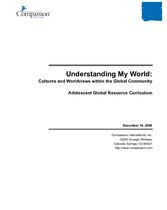
Understanding My World - Year 1 (19+)
The Core Curriculum for adolescents 19 years and older includes lessons that work to develop the socio-emotional skills of teenagers. Lessons focus o… -
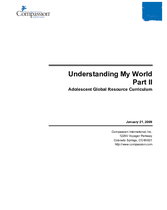
Understanding My World Part II - Year 2 (19+)
The Core Curriculum for adolescents 19 years and older includes lessons that work to develop the socio-emotional skills of teenagers. Lessons focus o… -
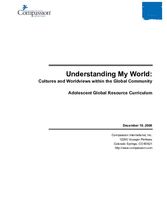
Understanding My World - Year 1 (15-18)
The Core Curriculum for adolescents between the ages of 15 and 18 includes lessons that work to develop the socio-emotional skills of teenagers. Less… -
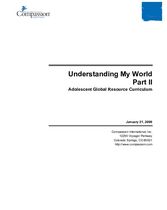
Understanding My World Part II - Year 2 (15-18)
The Core Curriculum for adolescents between the ages of 15 and 18 includes lessons that work to develop the socio-emotional skills of teenagers. Less… -

Supplemental Curriculum - Unit 12 - Background Family Tree
This handout “Background Family Tree” is an activity to be used with the Supplemental Curriculum Unit 12- I Can Learn: Early Social Studies Foundatio… -

Supplemental Curriculum - Unit 10 - Color Poem
This handout called “Color Poem” is an activity to be used with the Supplemental Curriculum Unit 10 - I am Creative: Expression through the Fine Arts… -

Supplemental Curriculum - Unit 12 - Landforms
This handout “Landforms” is an activity to be used with the Supplemental Curriculum Unit 12- I Can Learn: Early Social Studies Foundations. This focu… -
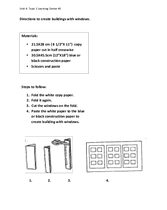
Supplemental Curriculum - Unit 4 - City Block
This handout called “City Block” is an activity to be used with the 3-5 Supplemental Curriculum Unit 4 - God Gave Us Communities. This focuses on the… -
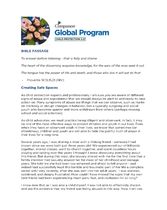
Child Protection Devotion #40
Creating safe spaces for children and youth as part of Child Protection in our daily lives is of great importance. Let this devotional challenge… -
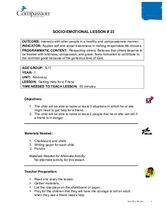
Getting Help for a Friend
The lesson “Getting Help for a Friend” teaches children more about healthy relationship development and both social and self-awareness in…
ForChildren.com is presented by Compassion International, a registered 501(c)3 non profit organization. All resources, courses, and discussions are intended for educational use only, not for profit.





